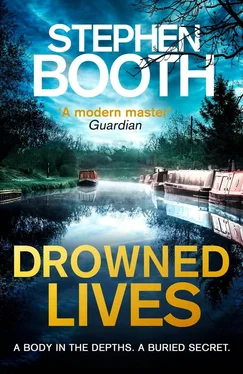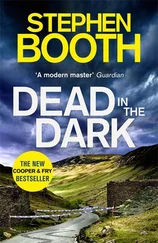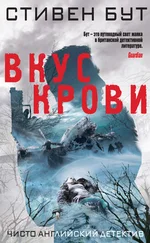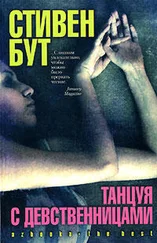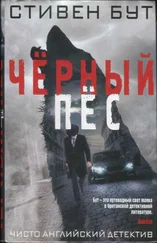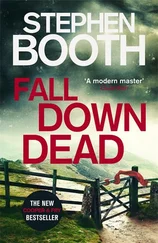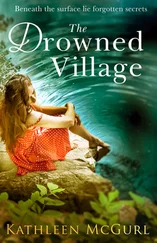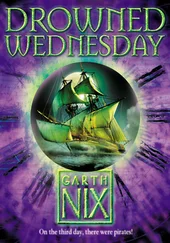‘Get it over with, Rachel, please.’
‘All right. Yes, I checked the indexes myself a long time ago and found there was no Samuel Buckley entered. I went through the actual registers, and there was still no Samuel. I looked hard, Chris. I really looked very hard, in every conceivable place. But the fact is, there’s no record for the birth of anyone called Samuel Buckley. There’s no doubt your great-grandparents only ever registered the birth of one child, and that was your grandfather, George.’
She looked up at me then, watching my face for a reaction. But I was beyond reacting now. I’d already been to the bottom of this pit, and concluded that the whole awful business had been for nothing.
‘It would have been easy at that stage to give up and decide Samuel Buckley didn’t exist,’ she said, ‘that the man claiming to be your great-uncle was a fake. But why should he do something like that? And who was he? It didn’t make sense. I thought there had to be another answer.’
‘And so you made sense of it, did you? You found an answer where I couldn’t?’
She flushed and turned back to her notebook. ‘I found the answer here in Lichfield, in the County Records Office. In the records of the Thomas Ella Trust, in fact.’
‘Hold on. Thomas Ella?’
‘Yes, the Reverend Thomas Ella.’
‘The canal proprietor?’
‘The same man.’
‘Samuel wrote more about him than any of the other proprietors,’ I said. ‘He described him as a visionary, who was almost single-handedly responsible for getting the Ogley and Huddlesford Canal scheme under way. He was a prominent personality, the headmaster of a local school.’
‘He also said that Ella was “a real gentleman and scholar”, generous, public spirited, a conscientious teacher and a good father,’ Rachel added.
‘Yes, all that and plenty more.’ I could see the appropriate page of the manuscript in front of my eyes as I spoke. ‘The Reverend Thomas Ella took snuff, gambled at cards and enjoyed brandy and wine. He bought silver buckles for his shoes and had silk handkerchiefs. He raised pigs. He was secretary of a circulating library and took an active interest in local politics. Oh, and his first wife had died, but he married again and had five children. It’s all imprinted on my memory after the book. Samuel made him sound like a hero.’
‘And with good reason, I think.’
I watched Rachel carefully. ‘Go on.’
‘There was another thing Samuel wrote about Thomas Ella. Do you remember the death of his son, who lived for only three weeks?’
‘Ella baptised him at a private service, but he died ten days later. Yes, of course I remember. But what has that got to do with anything?’
‘Something came from Thomas Ella’s desolation at the loss of his son. Ella wasn’t just a clergyman, a headmaster, and all the rest. He also founded charities. One of them was a charity for orphans. It was called the Thomas Ella Trust. It survived into the 1930s, then fell into disuse. Until then it had been very active.’
‘Doing what?’
‘Well, bear in mind that the Adoption of Children Act didn’t come in until 1926. That was the act that made adoptions legal in England and Wales. Before that, they had to be arranged privately via the Poor Law Union, or through certain charities. Charities like the Thomas Ella Trust.’
I let my head fall back onto the chair. I felt exhausted, drained of all energy. It seemed to have run out of me in floods since I nearly got myself killed for the second time at Fosseway Wharf.
‘So Samuel was adopted,’ I said. ‘After all that, Samuel was adopted.’
Rachel nodded eagerly, glad to get it over with. ‘You see, Chris, that was why family was so important to him. He was so grateful to have been taken in as one of their own that he put his heart and soul into being part of the family.’
‘Yes, all right. I can see that.’
‘But when he ran off with Mary, he betrayed it all. Of course, the Buckleys never forgave him. But Samuel accepted that as a right and natural outcome of his actions. He understood that George and his family didn’t want to know him any more. The worst thing by far was that Samuel never, ever forgave himself. Right until the end.’
She was right, of course. ‘He was carrying a huge burden of guilt,’ I said. ‘“There was a far worse betrayal”. Those were his words. He’d been trying to put it right ever since. It’s funny, really, that in the end he had to rely on another generation to finish the job for him.’
For a moment I saw myself as Samuel must have seen me — the next in a long line of ordinary human beings who happened to carry the same genes as William and Josiah Buckley. I was just an average man with many weaknesses, to whom he had to pass on the baton. And yet he’d trusted me not to drop it. He’d been sure I would carry out my part. Because I was one of the family. I was a Buckley.
Rachel closed her notebook and came to sit next to me on the sofa, her face full of concern.
‘That’s it, Chris. There’s no more.’
‘It’s enough. More than enough.’
‘I’m sorry. But it’s best to know the truth, isn’t? There have been enough secrets and lies.’
‘You’re right, Rachel. Thank you.’
Even after all these months, I hadn’t escaped the images that haunted my thoughts. At night I still saw the old horse emerging from the fog under the bridge, hauling the boat that had brought William Buckley to Fosseway Wharf for that fatal meeting. I still saw the figure in the darkness, waiting to crush his skull with a boat hook and conceal his body in a heap of abandoned lime. And I saw that terrible oily swirling in the water behind the lock gate as Josiah Buckley’s wife Hannah watched her husband’s battered face float to the surface.
And, of course, I would never be able to rid myself of the image of that old man left to die in the road at Castle Dyke, his body broken by the cold, unyielding steel of a car that had come out of the night. Death was in the unreachable corners of my mind, and it would never be removed.
But as Rachel and I sat in silence together, I found my thoughts were no longer whirling in that pit of despair. Daylight had entered at last, and a little flicker of hope was spreading through my life. In the end, it had been Rachel who brought me that release — she’d been the only one who stood by me all along, in spite of everything that I’d done. And now I found that I felt no uneasiness about our companionship, no defensive urge to drive her away.
‘So Samuel wasn’t a Buckley at all,’ she said. ‘Now, that’s what I call a con.’
I realised that Rachel was sitting very close to me, her hand on my arm. She was completely at ease and comfortable with me on the old sofa in the untidy Victorian semi, with the carriage clock and the worn rug and the cabinet full of Wedgwood figurines. For the first time, it occurred to me that I didn’t have to be the last of the Buckleys, after all. But there had to be a clear understanding between us on one thing.
‘Not a Buckley?’ I opened my copy of The Three Keys and looked at the picture of Samuel on the inside of the dust jacket. Surely she could see the determined set of Samuel’s jaw, as well as the pain in his eyes? She must be able to understand that he was a man who’d sacrificed himself so that future members of his family could live in peace? So that we could live in peace.
‘No, you’re wrong there, Rachel,’ I said. ‘As far as I’m concerned, Great-Uncle Samuel was the finest Buckley of them all.’
I’d like to thank my agent Teresa Chris and editor Ed Wood at Little, Brown for supporting this book, and all the readers who were willing to try something different. Thank you! My appreciation also goes to Lichfield International Arts Festival and renowned Lichfield bookseller Ralph James for the original inspiration and encouragement.
Читать дальше
